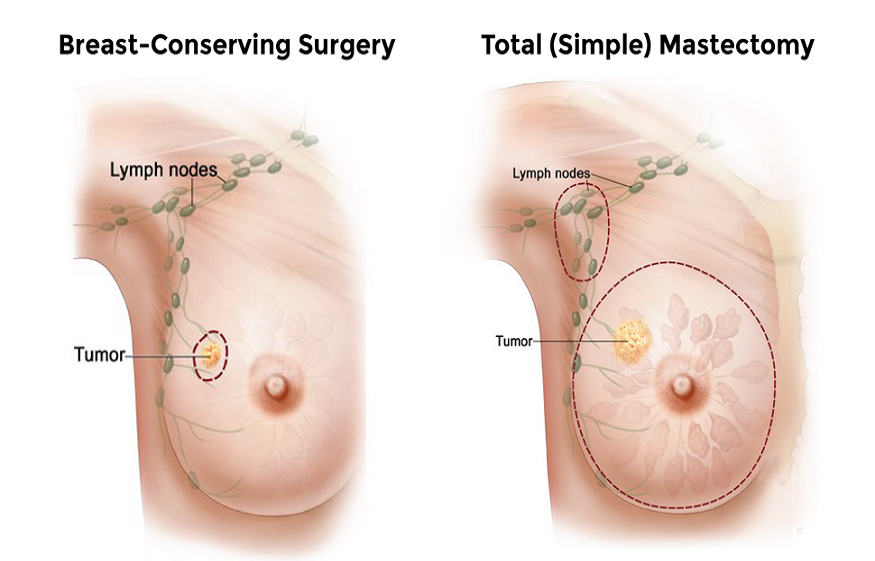Male Breast Cancer: All You Need To Know

Breast Cancer in women is a much talked-about and a widely known issue. But you seldom hear about breast cancer in men as most people are aware that men, too, suffer from breast cancer. Even though not quite common, male breast cancer is real since both men and women have similar breast tissues, and both genders have the possibility of developing breast cancer.
Breast cancer in men tends to be detected at a later stage, when the disease has already progressed aggressively, as men are less likely to be suspected of having cancer of the breast. Usually, it affects the lymph nodes through which it can move from the chest wall or the breast to the armpit, leading to metastasis or spreading of the disease.
Major risk factors for Breast Cancer in Men
Now that we know anyone can get breast cancer, there are multiple factors that can play a role in causing breast cancer among men. Here are some of the major ones:
Age: In men, the risk of breast cancer is more serious after 60 years of age, unlike women, who have the risk of developing the disease in all age groups
Genetics: Family history is the second leading risk factor in men who suffer from breast cancer, especially if the lineage runs in the male relatives
Elevated Estrogen Levels: Liver diseases, like hepatitis, cirrhosis, or heavy alcohol consumption contribute to increasing estrogen levels, leading to reduced male hormones. Also, non-prescribed consumption of hormonal medications can trigger adverse effect, increasing higher risk
Testicular Disease/Surgery: Undergoing surgery to remove a testicle (orchiectomy) in some cases, or having an inflamed testicle for a long time can also elevate the risk of breast cancer
Radiation Exposure: Excessive exposure of radiation to the chest due to diagnosis or treatment for conditions like lymphoma has been linked to a higher rish of breast cancer in men
Obesity: A sudden increase in weight, abdomenal fat, or generally being overweight, is associated with decreased levels of testosterone in the male body, which could trigger the risk factors
Klinefelter’s Syndrome: In some rare cases, a person suffers from this chromosome disorder, where the male body has more than one X chromosome due to altered hormone levels. Some medications used to treat this hormonal imbalanxe, or even some drugs that are porescribed to treat prostate cancer, or similar conditions, can also trigger arish of male breast cancer
Breast Cancer in Men – Signs & Symptoms
While abnormality in men’s breast cancer is detected in advanced stage, there are a few bodily changes that are observed with diagnoses:
- A painless lump around chest area
- Thickening in the breast tissue
- Change in skin color around breast
- Hardness in the nipple-areola region
- Increasing size in breast lump
- Nipples turning inwards/ upwards
- Abnormal discharge from nipples
- Noticeable changes such as puckering, redness, scaling or dimpling around breast skin
Most lumps or such masses are benign, but iin case you come across any, you should immediately consult a specialist.
Diagnosing Breast Cancer in Men
”For both men and women the first step to diagnosing breast cancer is to have the knowledge of performing a self-chest and breast examination. It needs to be acknowledged that one is not having any bumps or lumps that causes pain, along with oozing of pus from the nipple area,” says an Onco-Surgeon of AMRI Hospitals.
Some of the clinical examinations include:
- Mammography
- Breast Ultrasound
- Biopsy
- Immuno-histochemistry
- Blood Investigations
- PET-CT scan
Treatment
Treatment for cancer largely depends on the stage at which the disease is detected. While the approach to treatment for male breast cancer is the same as that of females, the option of breast-conservation surgery is limited in case of men due to the small volume of breast tissues. Generally, surgery, along with hormone therapy, is considered an effective treatment for breast cancer in men. It is seen that in most cases men are greater receptors of hormone therapy than women, which shows better outcome than chemotherapy or radiotherapy.
Final Thought
Often ignored, male breast cancer needs equal medical attention, which can avoid delays in diagnosis and management of disease. The rarity of the condition can deteriorate the overall health of a person and increase the risk of spreading cancer to other parts of the body. While no one can fight against their genes, the general aim should be to work on controlling the risk factors by adopting a healthy and stress-free lifestyle.






